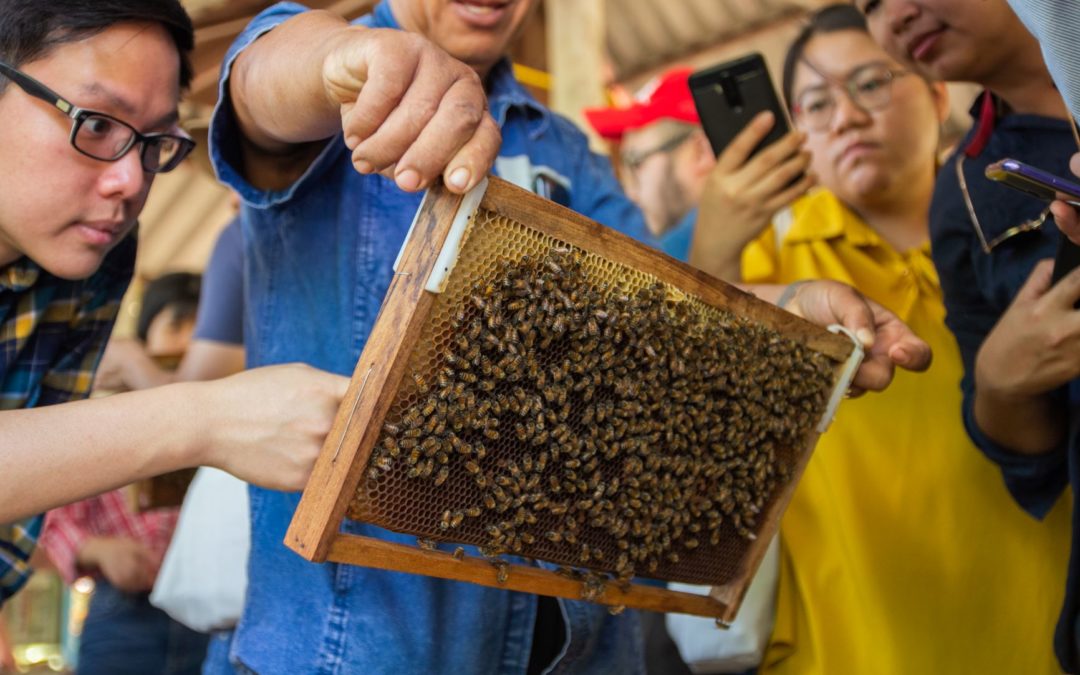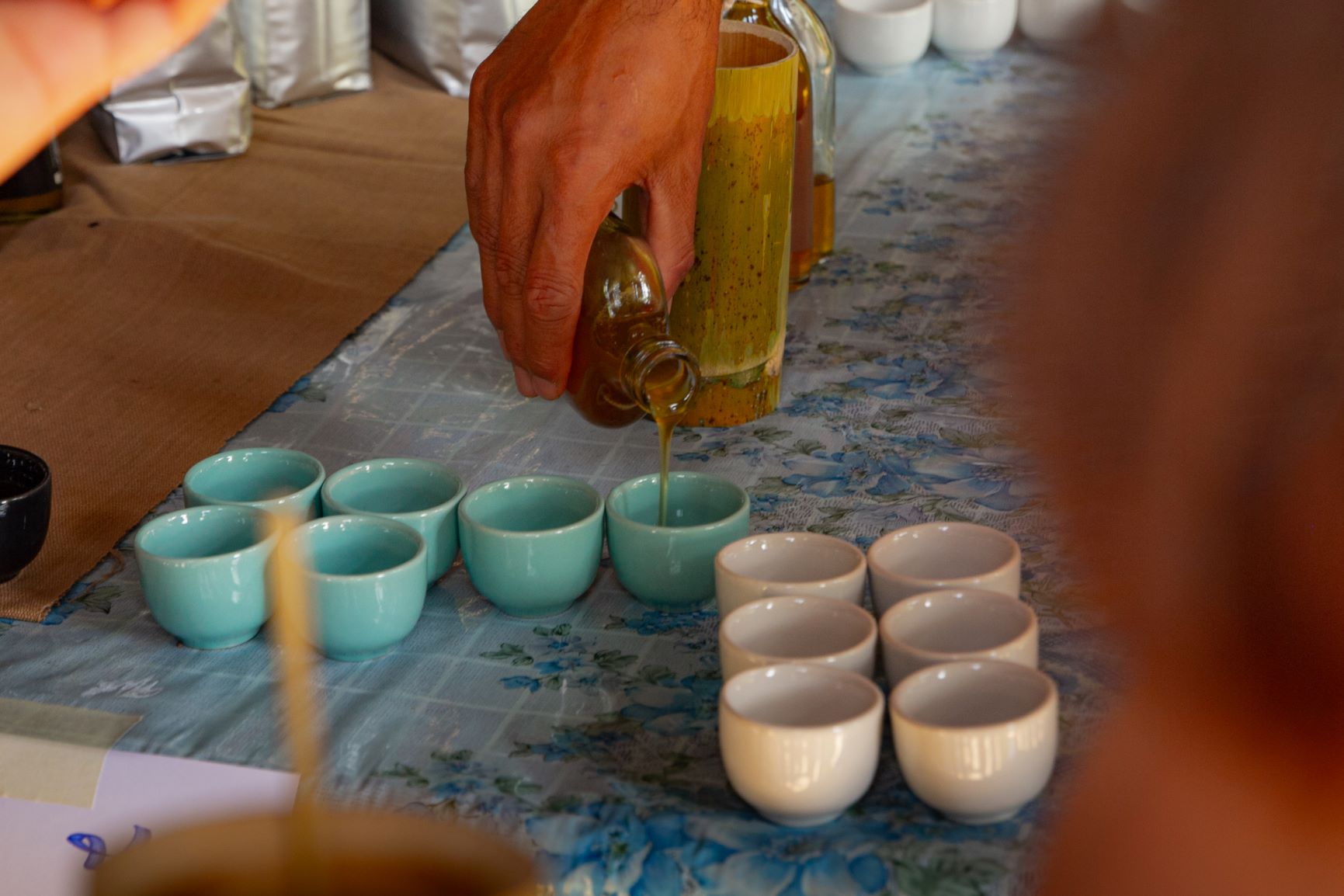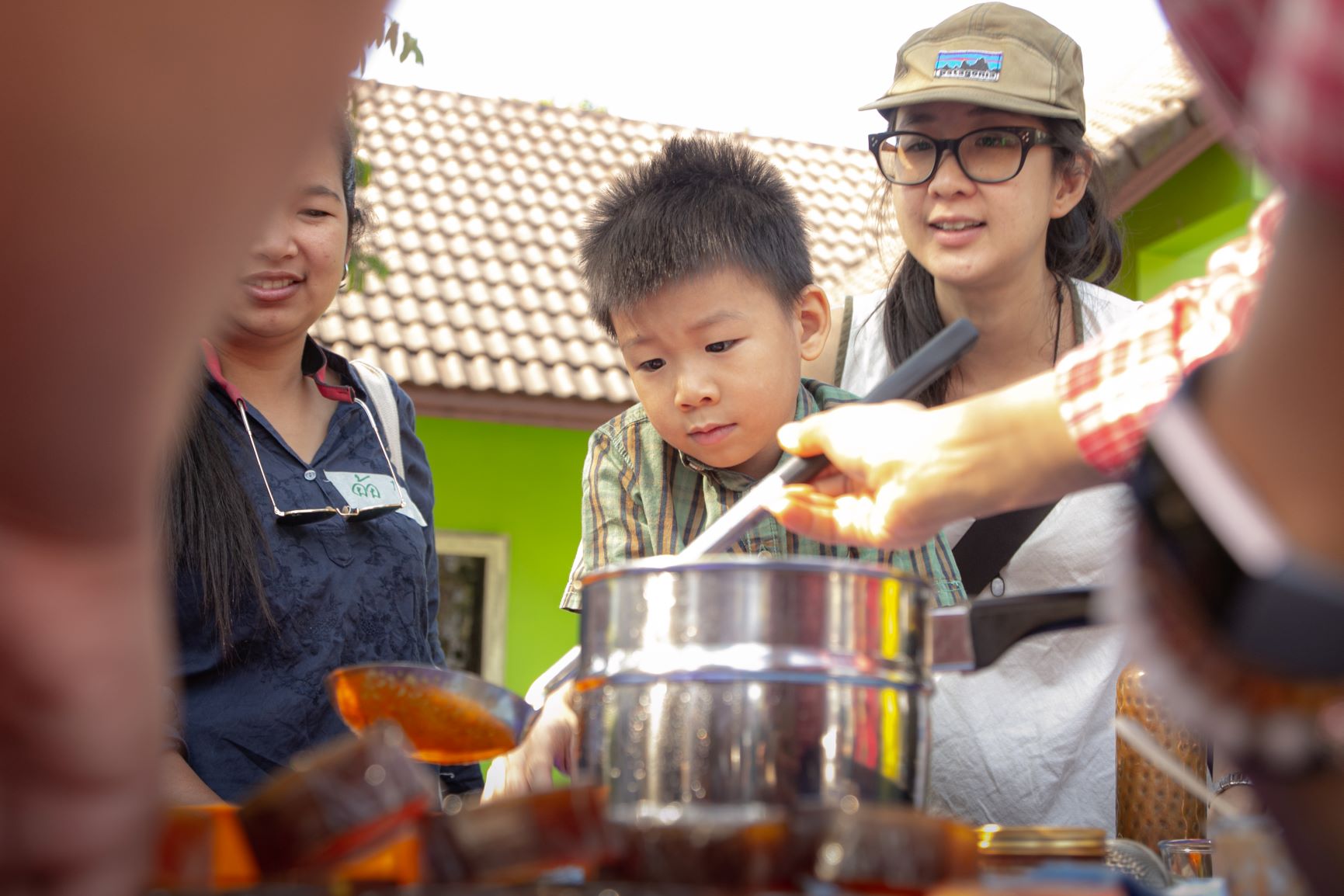In February 2020, the project was engaged in two events that emphasized the importance of pollinators for biodiversity and ecosystem health © WWF-Thailand
Terrace Talk: pollinators and biodiversity in Southeast Asia
In early February, WWF-Thailand joined forces with Heinrich Böll Foundation, Go Organics and local civil groups in organising this event to raise awareness on the importance of pollinators for ecosystems and biodiversity. Pollinators are crucial to food systems, but their populations are in decline. The total disappearance of pollinators would have drastic implications to our food systems, putting them in peril of collapse. This event focused on the role humans can play as stewards of ecological health, helping to mitigate the problem, and appreciating the role that insects and pollinators are playing for the ecology. The topics discussed that day included conversations around the behaviour of native pollinators, and the threats they are facing, as well and the possibility of urban beekeeping in Bangkok.
Two leading experts in the field gave essential input to the discussion:
- Dr. Alyssa Stewart, Assistant Professor in the Department of Plant Science, Faculty of Science at Mahidol University. Dr Stewart’s reserarch team discovered that “at least 40 pollinator species occur in Bangkok”.
- Dr. Orawan Duangphakdee, Associate Professor and Director of Native honeybee research laboratory at King Mongkut’s University of Technology Thonburi stated that “the key contribution of native beekeeping, beside bee product utilization, is pollination services”.
The importance of pollinators for sustainable food production
The second workshop was organised later in February as part of Sustainable Brands 2020 by WWF-Thailand, Biothai, Go Organics, Heinrich Böll Foundation, Earth Net Foundation and Thai Pesticide Alerts. The focus of this event was to promote pollinator restoration in nature and within the value chain. The event comprised of honey tasting, bee wax soap making, beekeeping techniques, informative talks, and a brainstorming session on how each sector can take an active role in pollinator restoration. One idea would be to transform spaces such as farms, campuses, factories, gardens, etc. into pollinator-friendly environments. Native beekeeping, local wisdom, good practices, and more were exchanged.



